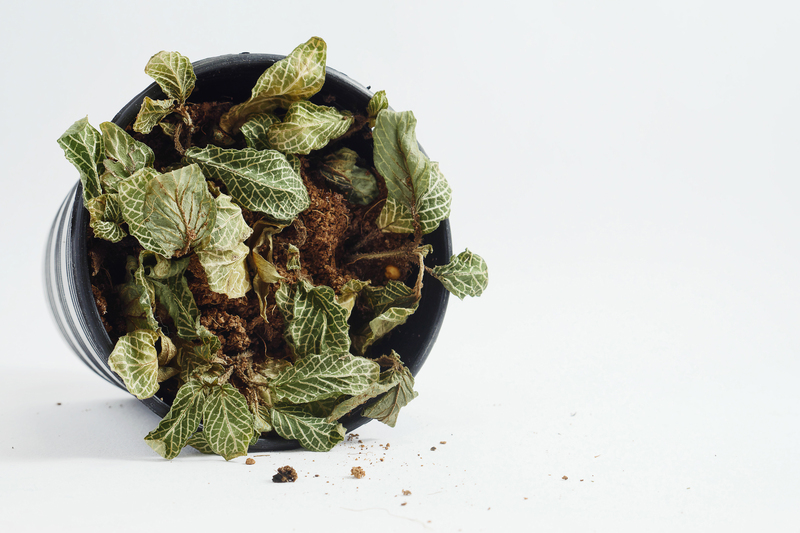How to Keep Garden Rodents Away: 10 Tips
Posted on 02/04/2025
Garden rodents such as rats, mice, moles, and squirrels can wreak havoc in your beautiful garden. They not only damage your plants but also spread diseases. Keeping these pests at bay is crucial for maintaining a healthy and aesthetically pleasing garden. Below are 10 essential tips on how to keep garden rodents away.
1. Eliminate Food Sources
Rodents are primarily attracted to food. One of the most effective ways to keep them out of your garden is by eliminating potential food sources. This includes not just human and pet food, but also plant residues. Ensure that any compost is well-managed and not easily accessible to these critters.
- Harvest ripe fruits and vegetables promptly.
- Store garden seeds in rodent-proof containers.
- Avoid leaving pet food outside overnight.

2. Use Rodent-Resistant Plants
Some plants naturally deter rodents due to their scent or taste. Incorporate plants like mint, marigolds, and garlic in your garden. These can act as a natural repellent and reduce the likelihood of rodent infestation.
3. Install Fencing
Building a physical barrier can be highly effective. Use wire mesh or hardware cloth to fence your garden. Make sure the fence is buried at least 6 inches underground to prevent rodents from burrowing underneath.
- Use galvanized materials to prevent rust.
- Check the fence regularly for signs of wear and tear.
4. Employ Natural Predators
Encouraging the presence of natural predators is another way to control the rodent population. Birds of prey, cats, and even some breeds of dogs are excellent at keeping rodents at bay. Set up bird feeders to attract owls and hawks, which are natural rodent predators.
5. Keep the Garden Clean
Maintaining cleanliness in your garden can significantly reduce rodent problems. Piles of leaves, wood, and other debris can serve as hiding spots for rodents. Regularly clean these areas to make your garden less appealing to these pests.
- Clear fallen fruits and vegetables.
- Dispose of garden waste properly.
6. Use Traps and Baits
Traps and baits can serve as an immediate solution to a rodent problem. Various traps are available, including snap traps, live traps, and electronic traps. Baits should be used with caution, especially if you have pets or children.
- Use peanut butter or seeds as bait.
- Place traps in high-activity areas.
7. Apply Rodent Repellents
Several commercial rodent repellents are available that can be sprayed around the garden. Alternatively, you can make natural repellents at home using ingredients like peppermint oil, ammonia, or garlic.
- Repellents need to be reapplied periodically.
- Ensure they are safe for plants and other wildlife.
8. Modify Your Irrigation Practices
Excess moisture can attract rodents, particularly those that dig burrows. Modify your irrigation practices to make your garden less appealing. Use drip irrigation systems rather than overhead watering to minimize soil dampness.
9. Seal Entry Points
Rodents often find their way into gardens through small openings or gaps in structures such as sheds or greenhouses. Regularly inspect these structures and seal any entry points. Use materials like expanding foam or steel wool, as rodents cannot chew through them.
- Regular inspections are key.
- Pay special attention to areas around doors and windows.

10. Community Effort
Sometimes, keeping rodents away is a community effort. If you live in an area where rodent problems are common, collaborate with your neighbors. Implementing control measures collectively can lead to more effective results.
- Share tips and resources.
- Communicate regularly about the rodent situation.
Conclusion
Keeping rodents away from your garden requires a multi-faceted approach. By eliminating food sources, using natural repellents, encouraging the presence of predators, and maintaining a clean environment, you can significantly reduce the risk of a rodent infestation. Implementing these 10 tips can help ensure that your garden remains healthy, bountiful, and free from the destructive presence of rodents.
Latest Posts
Must-Try Planting Concepts for a Beautiful Autumn Garden
DIY Guide to Perfectly Sharpening Garden Shears at Home
Essential Techniques for Maintaining Clean and Lush Artificial Grass
Transform Your Space With Meaningful Zen Garden Plant Choices




